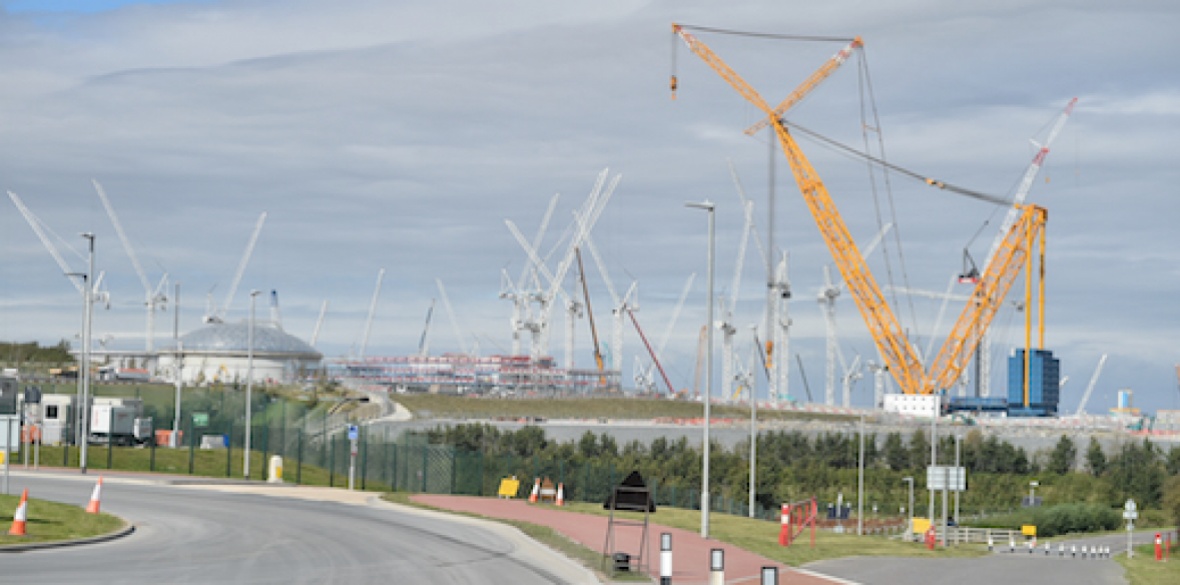This is the last article you can read this month
You can read more article this month
You can read more articles this month
Sorry your limit is up for this month
Reset on:
Please help support the Morning Star by subscribing here
IN RESPONSE to CND general secretary, Kate Hudson’s article(M Star September 10), about the need for the labour movement to change its energy policy, Trade Unions for Safe Nuclear Energy (TUSNE) would like to respond by making the following observations.
Contrary to the need for a change in policy, we believe the case for nuclear making a contribution to Britain’s energy requirements has never been needed more.
The Westminster government’s target of zero carbon emissions by 2050 is commendable.
However, we cannot act in splendid isolation; other nations must follow suit if we are to avoid the catastrophic consequences of climate change.
Hitting that target will without doubt mean changes to the way we all live and travel. We tend take for granted a constant source of affordable electricity, much of it from nuclear generation, to furnish our lifestyles.
TUSNEbelieves that the contribution from renewablesmust continue to grow and acknowledges that it is very encouraging to see how successful that growth of supply has been over the last 10 years, but there will be a limit as to how much we can reasonably expect renewablesto supply as we move towards 2050.
Some experts believe that 60 per cent is the limit to what can be achieved, and bear in mind that will be a variable supply source.
In addition, what is needed is a consistent supply of what is becoming to be known as “firm power.”
In Britain this is currently provided by nuclear and gas. The climate change committee reckons that without a nuclear contribution, the amount of decarbonised electricity supplied in 2017 would have been only a third of that we used and as Britain gets closer to net zero, the more difficult it will be to continue to make decarbonised gains.
This is where nuclear comes in. Without nuclear, it is going be extremely challenging to hit the target. Don’t take our word for it.
“Without an important contribution from nuclear power, the global energy transition will be that much harder,” so says International Energy Agency Executive director Dr FatihBirolat the launch of its latest report recently.
Hudson alerts us to the dangers of the nuclear industry. We, the workers in the industry with our families living in communities close to nuclear facilities, strongly refute this.
We are the custodians of health and safety around Britain’s nuclear plants. Why would we expose our families to the risks she suggests?
In fact we will go one step further by asking how many lives has nuclear generation saved through decarbonising the global electricity supply since the 1950s?
Hudson is correct in asserting that investment in new nuclear has been problematic, but the industry is learning from other industries, such as infrastructure, which have had similar problems in the past.
Using an entirely different financing model, they have been able to bring down costs and provide returns on investment far sooner than expected previously.
TUSNErecognises the need to take a responsible approach to finding a route for disposing of radioactive waste.
Britain has, over the last 70 years, built up quantities of legacy nuclear waste; some of it from medical purposes and much of it from the generation of decarbonised electricity.
It is currently stored safely at surface level at various locations around Britain and is managed and routinely repackaged by Prospect, Unite and GMB members.
Rather than leave for future generations to continually repackage and re-store, the time has come to find a permanent solution.
The internationally accepted route for permanent disposal is for the waste to be placed in highly engineered, deep geological vaults inside a suitable rock to prevent harmful quantities of radioactivity ever reaching the surface environment.
Packaging and multiple barriers, under the scrutiny of regulators, can provide protection over hundreds of thousands of years.
This is the route that Sweden, Finland, Canada and several others have chosen.
Our members have been charged as experts not only in keeping the waste safe, but also in the field of finding a safe and permanent facility for this waste.
Consultation with communities, on a voluntary basis, has recently opened and the decision to host the facility will be for communities to make rather than taken by government.
There will be significant economic benefits to the community together with multi-generational high-quality unionised jobs — the type of jobs currently enjoyed by workers around the industry and envisaged by Jeremy Corbyn in his speech to TUC last month.
Given the clear need to address the legacy waste issue, TUSNEwill always encourage and welcome dialogue with all interested parties to openly discuss the issues and listen to concerns.
Peter Mcintosh is chairman of TUSNE(Trade Unions for Safe Nuclear Energy) and Unite national officer, energy and utilities sector.












